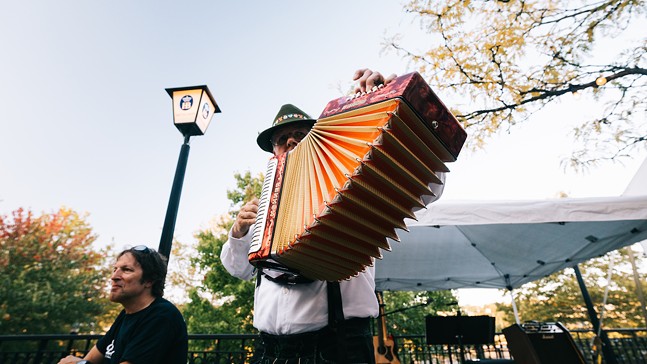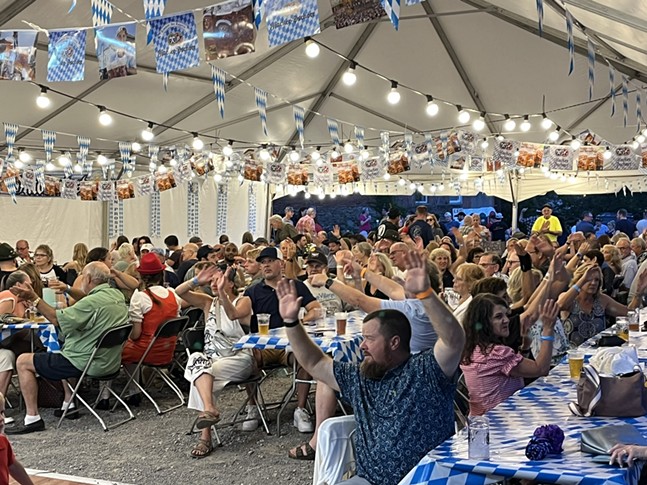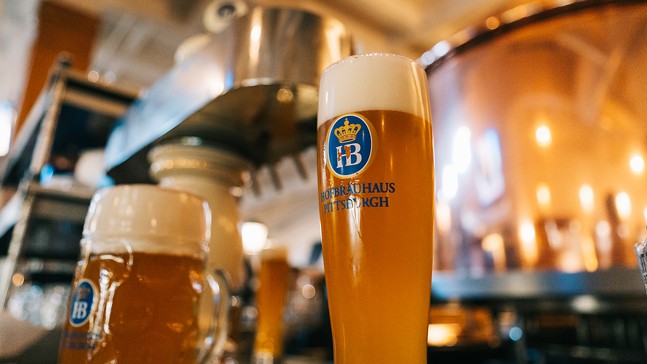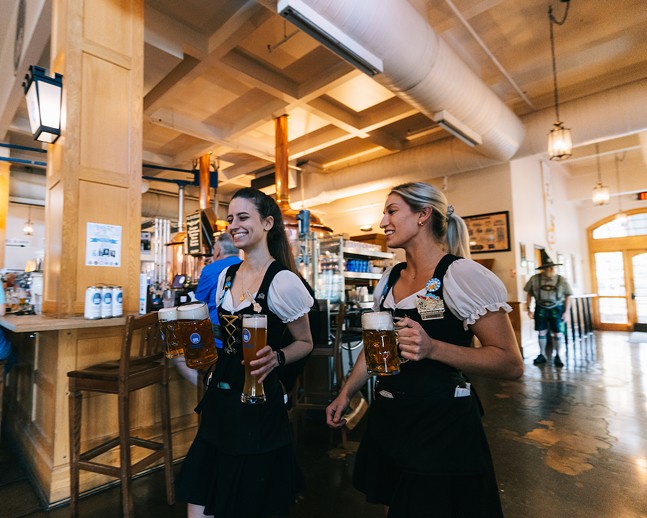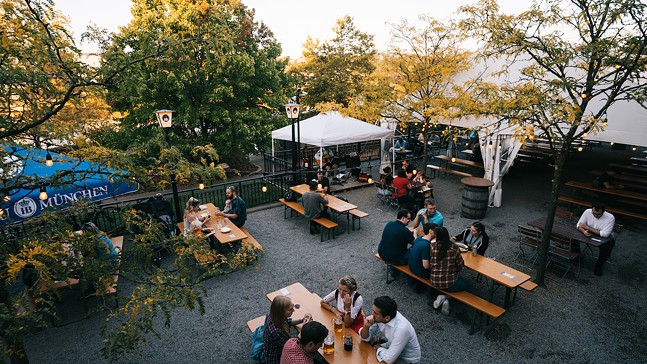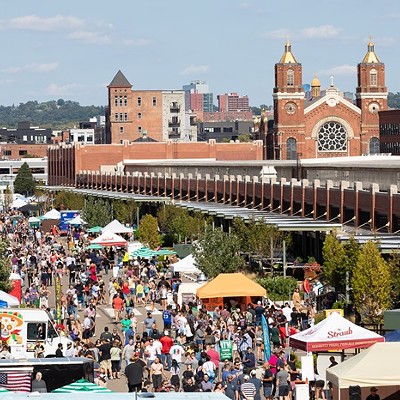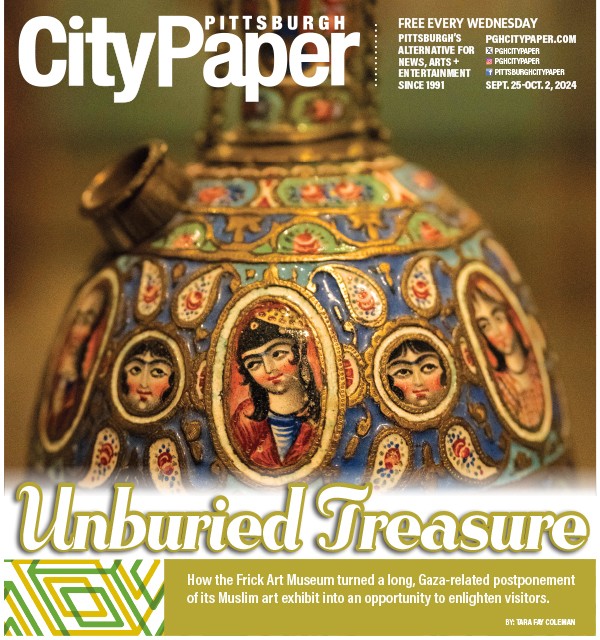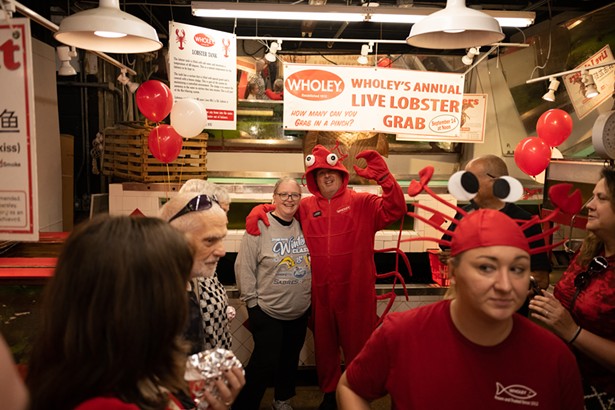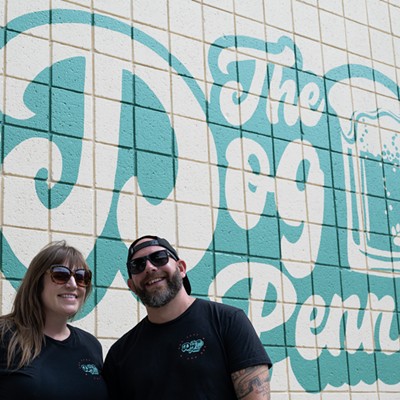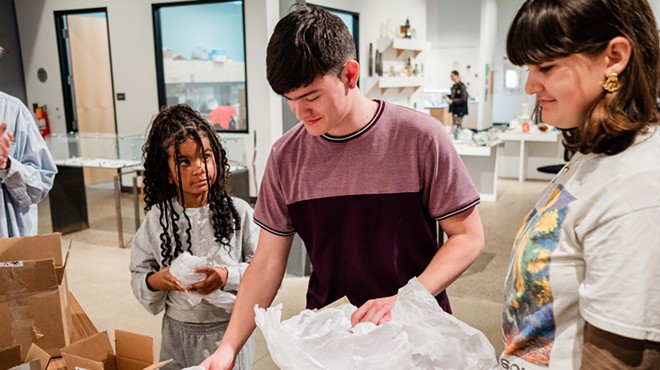"Beer is proof that God loves us and wants us to be happy," Benjamin Franklin once professed, or so they say. Historians argue whether this is actually true, but if he ever witnessed Oktoberfest, he'd likely have slapped this quote on a big Bavarian mug and chugged away.
Oktoberfest, the global celebration of beer, pretzels, and all things wonderfully indulgent, is more than an excuse to drink gallons of Märzen and eat your body weight in bratwurst. It’s a festival that has become a tradition worldwide, especially in Pittsburgh, where our love of beer runs just as deep as our love of fries on sandwiches.
But what makes Oktoberfest resonate here, in the heart of Western Pa., where our rivers flow alongside pierogies and Pittsburghese?
"It’s the same reason everyone’s Irish on St. Patrick’s Day," says Sylvia McCoy, founder of ‘Burgh Bits & Bites, a local company that organizes food tours in Pittsburgh. “Oktoberfest resonates with everyone, whether or not you’re of German heritage. It’s a celebration, an excuse to connect with others, eat, drink, and just have a good time.” The roots of Oktoberfest are Bavarian — a marriage celebration that morphed into a legendary festival that spans continents and centuries. Maybe that's why we’ve embraced it so enthusiastically here in the 'Burgh.
Let’s rewind for a minute to where this centuries-old festival comes from.
Back in 1810, Bavaria’s Crown Prince Ludwig married Princess Therese of Saxony-Hildburghausen, and Munich’s first Oktoberfest was born as a wedding bash. A small, intimate affair for Bavarian royals and locals? Not quite. The festivities, which lasted several days, featured horse races and — naturally — copious amounts of beer. The whole event was such a hit that they decided to make it an annual tradition. More than two centuries later, it’s grown into one of the world’s largest festivals. In Munich, over 6 million visitors descend on the city each year to raise a glass (or three) to Bavarian culture.
Pittsburghers may not be royalty, but we certainly know how to throw a party. McCoy, who grew up celebrating Oktoberfest at the Teutonia Club with her family, reflects on how the festival has evolved in the city: "Pittsburgh’s strong German heritage means our Oktoberfest stays pretty traditional, especially with the music, food, and dancing. But there's also a lot of room for fun."
“Growing up, I spent many Oktoberfests at the Teutonia Club with my family. I took my own kids there too, and it’s been wonderful to see the next generation enjoying the same traditions. When my daughter was younger, she even sang in the Kinderchor. Those are memories I’ll cherish forever,” says McCoy.
Tom (who requested to go by his first name only), manager at the Teutonia Männerchor, a historic German American singing society established in 1854, writes in an email that Pittsburgh’s celebrations have grown and adapted over the years "The festival's start in Pittsburgh dates back to the early 20th century, reflecting the German American community's desire to celebrate and preserve their cultural traditions. Initially, local celebrations were smaller, community-driven events held in church halls or local beer gardens. As the festival grew, it moved to larger venues, like the Pittsburgh Oktoberfest at the historic Allegheny County Courthouse and, more recently, at Pittsburgh’s Southside Works."
But why does this beer-centric bash get so much love, especially in Pittsburgh? Maybe it’s the sense of camaraderie — after all, Oktoberfest is about coming together, eating, drinking, and being merry. Or maybe it’s the bier. Let’s be real: beer is the star of the show.
Prost! The Perfect Pour
Of course, no Oktoberfest is complete without beer. And not just any beer — real Bavarian beer has a legacy as old as Oktoberfest itself, thanks to the Reinheitsgebot, the German beer purity law of 1516.
“Bavarian beer is unique because it adheres to strict purity laws that have been around for over 500 years,” says Tom. “The Reinheitsgebot originally stated that beer could only be brewed using water, barley, and hops. Yeast was later added once people realized it was key to the brewing process.” This law ensures that the beer at Oktoberfest — whether in Munich or Pittsburgh — has the same robust, malty flavor that’s been loved for centuries.
And what kind of beer are we talking about here? “Oktoberfest beer, also known as Märzen, is brewed in the spring and aged until the fall. It’s a hearty, amber-colored beer with a full-bodied malt flavor,” writes Tom. “Only beers brewed within Munich’s city limits can officially be served at the festival in Germany. But here in Pittsburgh, we celebrate with a variety of beers, including some great local craft brews alongside the traditional Bavarian styles.”
Beyond the Beer
The food at Oktoberfest has become as iconic as the festival itself, with images of soft pretzels and grilled sausages dancing in our heads. But how did these foods become staples?
“Many of the foods we associate with Oktoberfest were actually served at the royal wedding feast in 1810,” McCoy explains. “Pretzels, for instance, have a long history. They were originally made by European monks in the Middle Ages. The knot shape is meant to represent the Holy Trinity, with the three holes symbolizing the Father, the Son, and the Holy Spirit.”
McCoy’s personal favorite is the Spätzle. “It’s a homemade noodle dish, and my mom makes the best. But the Spätzle at the Teutonia Club is a close second,” she says.
Sausages, too, play a huge role in the festival. “Germany has a rich tradition of sausage-making,” writes Tom. “At Oktoberfest, you’ll see everything from Bratwurst to Weißwurst. Sausages are an integral part of the feast because they pair perfectly with the beer — salty, savory, and satisfying.”
And let’s not forget the roast chicken. “Roast half-chicken is another classic Oktoberfest dish,” writes Tom. “It’s seasoned with special spice mixtures, grilled over an open flame, and often served with potato salad and a pretzel on the side.”
The festivities
No Oktoberfest would be complete without the sight of Lederhosen and Dirndls. “I wear my Dirndl for Oktoberfest because my origin is both German [mom] and Swiss [dad]," McCoy says. "My husband, whose family is Irish/Scottish also dresses in a more traditional Swiss style shirt to celebrate the festivities. During Oktoberfest, everyone is of Germanic descent.”
Tom explains that dressing up is about participating in something much bigger. “Oktoberfest is a celebration of Bavarian culture, and the clothing, music, and dancing are all a part of that. Here at the Teutonia Club, we have the Alpen Schuhplattlers, a traditional Bavarian dance group, perform every year.”
Want to Celebrate at Home? Here’s How to Throw Your Own Oktoberfest Bash
Can’t make it to Munich (or Penn Brewery)? No problem. According to McCoy, bringing a little bit of Oktoberfest to your own backyard is easier than you think. “Make a meal with traditional German foods: Bratwurst, European-style bread, German cheese, pretzels, sauerkraut, and, of course, beer can all be found at shops in the Strip. Play traditional German music, and invite friends over to join the fun.” Just like that, you’ve got yourself an Oktoberfest!
Tom agrees, suggesting, “Create an authentic atmosphere with blue and white checkered patterns, traditional music, and even a stein-holding contest. Serve beer in traditional steins and set up a beer garden-style setting.”
Where to Celebrate Oktoberfest in Pittsburgh
Some might say that Oktoberfest is best celebrated out in the world, among friends and strangers alike, with a pint in hand and polka music blasting. So where should you go if you want to celebrate Oktoberfest in Pittsburgh?
- Penn Brewery: Known for its German-style beers, Penn Brewery’s Oktoberfest is a Pittsburgh favorite. Expect traditional food, great beer, and a lively crowd.
- Oktoberfest Pittsburgh just leveled up—with a Ferris wheel on the Roberto Clemente Bridge! From October 3–13, get ready for beer tents, Bavarian bites, and some wild fall fun in Market Square. Beer, brats, and a bridge? Let’s go!
- Hofbrauhaus Pittsburgh: This German beer hall brings the Munich vibes to the Southside with its Oktoberfest celebration. Think big steins of beer, live oompah music, and plenty of pretzels.
- Max’s Allegheny Tavern: Dive into a cozy tavern with authentic German fare. Their Potato Pancake Reuben is a must-try, and their beer selection will keep your stein full and your spirits high.
- Lorelei: For a twist on tradition, head to this spot on S. Highland Ave. It’s a blend of alpine charm and modern flair with wood-fired pizzas and a range of local and imported beers.
- Biergarten: Kick back in a lively beer garden with a menu packed with pretzels, sausages, and more. There’s free flowing beer too, of course.

